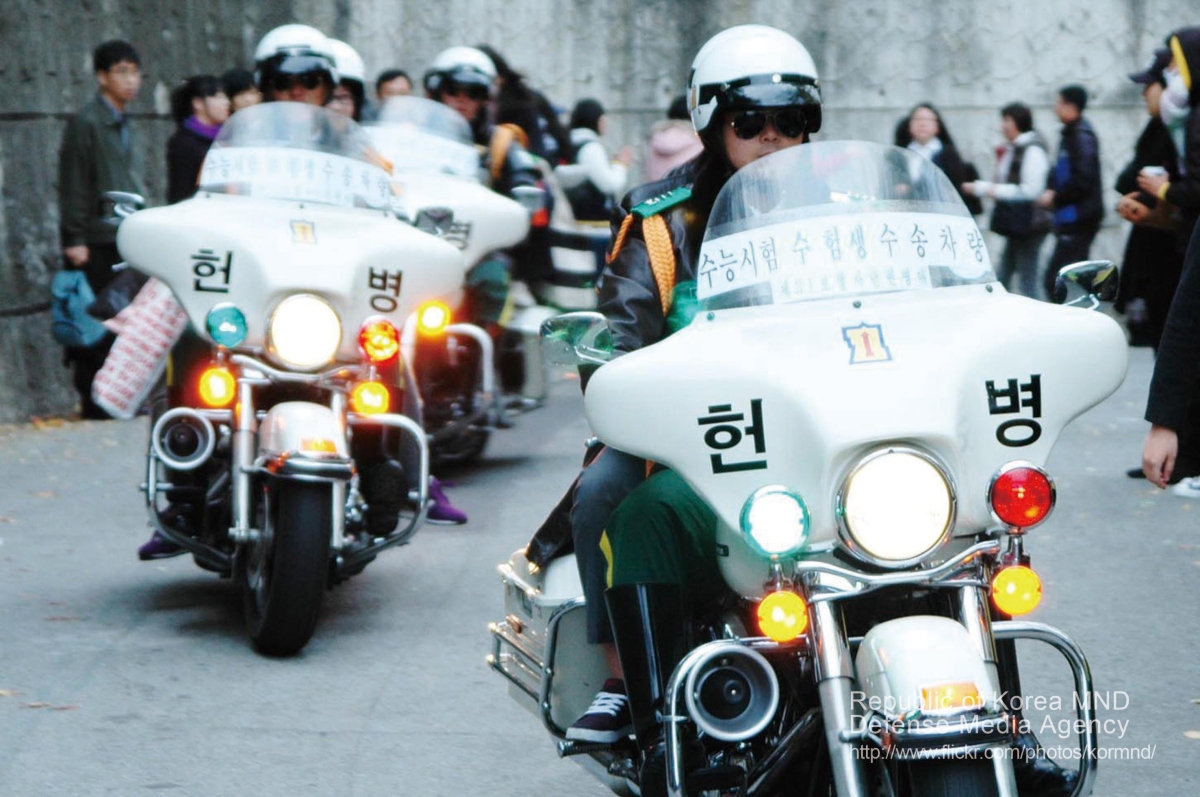South Korea's Life-Defining Exam

On Thursday, November 16, a 5.4 magnitude earthquake shook the southeastern part of Korea, injuring 14 and damaging many buildings and roads. Arguably, a bigger shock was the government's decision to postpone the Suneung, South Korea’s critical college entrance exam, by one week in response to the natural disaster.
Every November, hundreds of thousands of high school seniors sit down to take the eight-hour-long College Scholastic Ability Test, an exam that many students have been preparing for since kindergarten. A team of professors and high school teachers from across the country creates the exam in a secret location, often in a sparsely populated, mountainous region of Korea. The test creators must surrender their cell phones and are effectively cut off from the outside world as they cannot contact their friends or family for the month they are in isolation for fear of them leaking test questions. The subjects they write questions for include math, history, science, Korean language, and English.
The Suneung is the culmination of an entire academic career for a student in Korea. Especially in high school, students' lives revolve around this test with most students arriving at school at 7am and not getting home until well past midnight. A typical day consists of around 10 hours of school, a quick dinner break, and the rest of the evening spent in study halls, cram schools, or libraries. For students, the exam can be a golden ticket to study at one of the country's top universities and a future job in the government, the banking industry, or at a large industrial conglomerate.
On the day of the exam, stock markets, public offices, and many other businesses all open an hour later to keep traffic off the roads. As students walk to the exam centers on the morning of the test, well-wishers handed out yeot, a type of sticky candy that is eaten in the hope of good luck. Despite regular classes being cancelled, other students still turn out to cheer on the test takers and Korean celebrities record encouraging messages and post them on the internet. For students running late, local police officers escort them to the test centers for free. Even protesters will often suspend their demonstrations for the day. The army halts aviation exercises, and the taking off and landing of planes at Korean airports is banned during the English listening test. Many students’ parents pray at churches and temples and some even wait, pacing outside the school gates, while their children endure the eight-hour test.
The unexpected earthquake last Thursday provided students with an extra week to study and prepare for this life-defining exam. With many students having waited years for this day, all their attention is now focused on Thursday, November 23, where hopefully the Suneung will take place without any further drama or incident.
